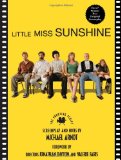The Worst Telephone Script is No Script at All!
The Worst Telephone Script is No Script at All!
Why won’t your sales, customer service, technical support, and professional associates willingly use scripts? By “scripts” I mean explicit conversational guides that pave the way to success.
Given any wiggle room, most people who staff the phones will slip out of implementing these meant-to-be-helpful tools.
Is rep resistance of this sort rational or irrational? Are these folks enabling or disabling themselves through script avoidance?
As a veteran practitioner and consultant in business-to-business and business-to-consumer calling; and in inbound sales, service and technical support, I’ve seen people go to great lengths to escape scripting, even at the expense of losing their jobs.
Managers have cajoled, threatened, and rewarded script use, with much the same outcome. They walk through their call centers and sales bullpens and hear a different “speech” being uttered by every voice in the room.
Instead of conducting a symphony, where everyone knows the score and is literally on the same page, leaders and trainers hear continuing cacophony, conversational chaos.
What’s up with this?
Is it worth your effort to introduce, polish, and police a “master script” that all are expected to use?
The answer to this question is a solid, unequivocal, “Maybe.” You need to be willing to be more thorough than you have ever been in introducing and sustaining scripts, if you expect compliance and a big payoff from their use.
Scripts can and should work, but they have little chance of proving their value until people use them. But if they won’t even try them out, what evidence do you have to support your contention that they will do better your way than with an “unscripted” approach?
If you want your people to use scripts, you’ll need to hail a CAB.
There are three challenges facing managers: (1) Cognitive; (2) Affective; and (3) Behavioral. We must change what our reps KNOW about scripts; how they FEEL about them; and most important, how they BEHAVE with regard to them.
Most managers try to skip steps (1) and (2) and jump to (3).
They say: Just try it! You’ll see. It will work!
Then, they’re amazed that reps won’t budge.
By enhancing what reps KNOW about scripts, we move people along a continuum from ignorance to enlightenment. People need to KNOW a few vital things about scripts.
(Optimally, these pointers are delivered in seminars and small group briefings.)
For one thing, scripts are INEVITABLE. You cannot escape using one. Why?
Language is redundant–it repeats itself. (See?)
Moreover, as survival-seeking beings, our brains are hard-wired to notice patterns that succeed, whether it’s stalking the weakest caribou in the herd, or pouncing on prospects that say, “Yes, we have a budget for what you’re selling!”
Precursors to success repeat themselves in our presentations. If we sneeze during a crucial part of the talk, and a prospect suddenly loosens up and becomes more agreeable, we’ll sneeze, or cough unconsciously, and later, even purposely inject a pratfall as our talks arrive at roughly the same moment.
Script-masters notice these critical coincidences and exploit them. They’re able to listen to calls that succeed and fail and to glean from them the dos and don’ts that are generally inaudible to the rest of us.
They make what is mostly tacit, explicit. There is a hidden design to success, they believe, that eludes novices and others that insist on winging their calls.
Script-masters and wise managers also appreciate that the shortest call path to a sale or to a pleased client is a straight line, and extemporized talks are often unnecessarily circuitous and long-winded.
In a word, scripts promise efficiency and effectiveness. You’ll sell more, service better, and provide even a higher quality of tech support, when you use a script. And you’ll save time.
But let’s say all of these things are true, and your reps now KNOW why scripts work, that they are inevitable, that they will exist whether they are written down or seem to pop out of our mouths; what then?
Will reps use them, now that they KNOW more?
No.
Knowing and doing are two different challenges. Bridging them is the matter of how we FEEL about scripts, the AFFECTIVE dimension of our attitudes.
By adjusting how reps FEEL about using scripts, we move people along a continuum from a negative to a positive attitude and from outright resistance to tentative acceptance.
We need to work this FEELING part of the equation from a few different angles.
First, we need to appreciate that many people feel using a script makes them at best, a low-level worker. They think scripts create a spirit-sapping assembly line in a conversation factory, transforming them into mere robots.
Did they graduate from high school and start or finish college and obtain professional certifications FOR THIS?
To be whipped into compliance? To be cogs in the machine, or worse, the machine, itself?
Many people feel scripts are “phony,” are inherently untruthful and “manipulative.”
You’ll hear them lament “I’m not an actor!” and “I want to be ME!”
(These are immature, adolescent, and naïve reactions, but they’re REAL.)
Associates and colleagues don’t quite get the fact that they’ll be role-playing for their entire lives, as long as they need others for sustenance, love, assistance of any kind. Moreover, they’ll need to squelch that “Me, me, me” insistent brat-voice to simply and effectively get along with others, wherever they are.
And we, like surrogate parents or big brothers and sisters, have to break this “real-world” news to them.
Some job candidates have likened scripts to serving fast-food, and have snickered, “I don’t want to work at McDonald’s!”
I love this, because it gives me a chance to lecture them on the genius of Ray Kroc and the human systems he created for assuring cleanliness and delivering successful food service worldwide, irrespective of diverse languages, cultures, suppliers, and even in the face of antagonistic political and economic systems.
I get to tell them how I worked for an experimental unit of McDonald’s called Raymond’s, in the middle of Beverly Hills, across the street from Tiffany & Company.
Kroc built a true jewel of a company based on SCRIPTING nearly everything humans do at work.
I was cleaning my own kitchen counter the other day and a smile crossed my lips after I asked myself the question, “Why am I so finicky about cleaning-up before and after meals?”
“Because you were TRAINED TO DO IT!” a voice bellowed from inside of me. Guess who trained me? The same folks Ray Kroc trained.
By teaching people how to FEEL about scripts, to appreciate and respect them as tools for financial success and even for LIFE SUCCESS, we start to attack the second challenge of making scripts work, and making our people work their scripts.
We drill down to the core emotional resistance people have. Scripts aren’t barnacles that prevent ships from sailing smoothly. Scripts are the engines, the sails, the captain and crew, and the laws of the sea, all rolled into one.
The final part of the scripting vehicle, the CAB, is BEHAVIORAL. Your people can know more and feel less negatively about using scripts, but they are paid to put them to work.
I’ve found the best way to get people to use and to keep using a master script is to offer this open challenge.
“If you can write and stick to using a better script, show it to me. If I think it has a chance, I’ll let you test it, after we have established a baseline for using the master script. If yours beats the master, you get to keep using it, until your performance falls below room average. Who knows, if yours is effective enough, maybe it will become the new master, and there may even be a bonus in it for you!”
What does this say?
Scripts are here to stay. If you don’t like ours, beat it with yours in a controlled experiment.
We don’t care what system works, providing it is honest and you work the system.
What we do know is improvisation, winging-it, and being unsystematic are pathways to failure.
The worst script, in other words, is trying to have no script at all.
Dr. Gary S. Goodman is a top speaker, sales, customer service and negotiation trainer, best-selling author, and TV and radio commentator. He conducts seminars and convention presentations around the world and can be reached at: gary@customersatisfaction.com
His profile can be read at: http://www.linkedin.com/pub/0/a91/833
Article Source:
http://EzineArticles.com/?expert=Dr._Gary_S._Goodman
Presidential campaign day includes stunts, stagecraft and scripts
Stunts, stagecraft, scripts — and a touch of the surreal — shaped the presidential campaign Thursday, May 31, as Mitt Romney and President Barack Obama sought an edge on voters' No. 1 issue, the economy. On one coast, Romney made a surprise trip to …
Read more on Pioneer Press
PHP News Script
With Our Creaflux Script, You Are Operational Immediately And You Can Start To Broadcast News On Your Website Right After The Installation Of The Script. Easy To Install And To Use (intuitive Interface).
PHP News Script
Little Miss Sunshine: The Shooting Script (Newmarket Shooting Script)
Here is the official screenplay book tie-in to the uproarious American family road comedy. Brazenly satirical yet deeply human, Little Miss Sunshine introduces audiences to one of the most endearingly fractured families in recent cinema history. Meet the Hoovers, a motley six-member family who treks from Albuquerque to Redondo Beach, California, to fulfill the deepest wish of seven-year-old Olive, an ordinary little girl with big dreams. Starring Greg Kinnear, Toni Collette, Steve Carell, Abigai
List Price: $ 19.95
Price: $ 7.89
www.tuneday.com – FREE MADDI JANE downloads through our Official partner site TuneDay.com for a limited time only. http – iTunes Download Maddi Jane covers The Script’s “Breakeven” (Falling to Pieces) Join the discussion at: www.facebook.com Follow me on Twitter: www.twitter.com Special thanks to: Nick Meriage – www.creativedigitalmasters.com (Video) Stevie Mast (Guitar) Jim Mast (Audio)
Video Rating: 4 / 5



